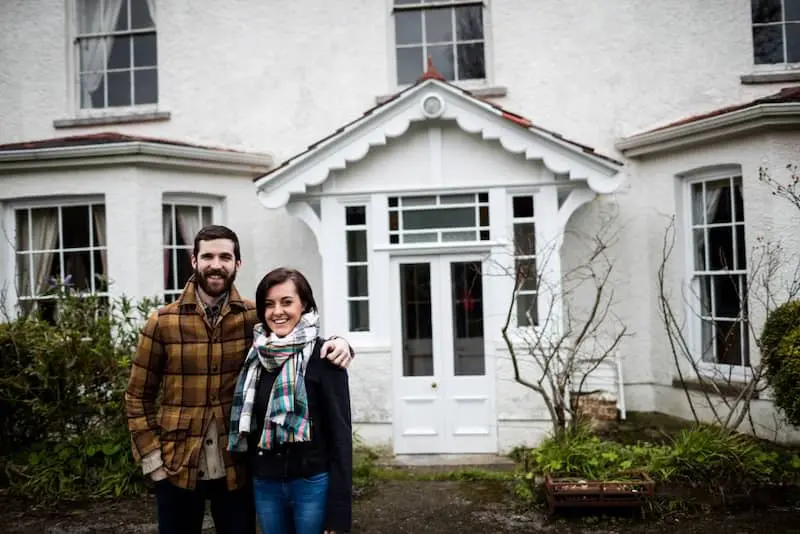Inheriting a home from a loved one can be an emotional and overwhelming experience. Along with mourning your loss, you also face legal responsibilities and the sudden task of managing a new property. We understand how stressful this can be and are here to help lighten the load.
To assist you during this time, we’ve created a comprehensive guide to walk you through handling an inherited property. Our goal is to help you understand all available options so that you can feel confident in making the best decision for your circumstances.
Navigating the Probate Process
Simply put, probate ensures your loved one’s wishes are legally executed. Regardless of whether a will was written or not, the transfer of ownership for a property following the owner’s death typically requires the situation to go through the probate process.
The probate process typically takes six months to a year in Virginia, depending on the complexity. This time is used to validate a will’s conditions and ensure they are carried out. An executor, usually appointed in the will itself, will divide assets according to the will’s requests. If there is no executor or will, the courts will take on this responsibility.
Regarding homes, the probate process ensures that all debts and payments are covered and the property is passed along according to the owner’s will. Virginia inheritance laws, alongside the courts, will decide who will inherit the property if the owner does not have a will.
Transfer of Death Deed
The allocation of homes listed in a will may include a transfer of death deed (TODD) clause. A TODD is an arrangement set out by the property owner in their will that directs the title of the home to a specific individual explicitly mentioned in the document. A TODD is often a best-case scenario, as it eliminates lengthy probate court proceedings and the potential payment of expensive legal fees. If you are receiving a TODD inherited property, it is a more seamless process to official home ownership.
Financial Considerations When Inheriting a Home
With such a high-value asset being transferred, there are bound to be some financial responsibilities that must be shouldered by the individual who now owns the property. Here are typical costs associated with inherited properties, whether you have to pay it, and how much you have to shell out:
Probate Taxes
In the Commonwealth of Virginia, estates valued at $15,000 or more are charged following the filings of most wills. The tax rate is $0.10 for every $100 the property is worth. With that said, certain filings are exempt from the tax, including:
- A jointly held property where the other party is still alive (right of survivorship)
- Property is passed through the exercise of the power of appointment
If you are looking for more information on probate taxes, the Virginia Department of Taxation has a resource on probate tax.
Inheritance Taxes
Virginia no longer has an inheritance tax. If you are the deceased’s spouse or a descendant, you are not legally obligated to pay a standard inheritance tax.
Federal and State Taxes
As the new owner of an inherited property, it is your job to file the tax returns on the home. You must remember to file the deceased’s income tax and personal property tax returns, as well as the estate income tax return and Virginia estate tax return.
Should I Sell My Inherited Home in Northern Virginia?
It can be challenging to manage a new property, especially if you live out of state or are not in a position to maintain it. Selling the home can relieve you of this burden, but there are legal and financial factors to consider before selling the property.
Capital Gains Tax
When you inherit a property, you aren’t responsible for paying any capital gains tax. However, when you choose to sell the property, you will be. The standard rate of Virginia’s capital gains tax is 5.75%.
The tax is based on a “stepped-up basis.” Simply put, it’s calculated based on the property’s value at the time of the original owner’s death, not the price at which they purchased it.
Property Tax
Property tax on a house must be covered when it is sold. Typically, the tax is shouldered by the seller unless there is a stipulation in the negotiations of the house price. Virginia’s average rate is 0.75% of the property’s value.
Transfer Tax
Whenever a home is sold, the seller incurs a transfer tax. The general rate in Virginia is $2.50 for every $1,000 the house is worth, but it may vary depending on the county the property is in.
Selling Your Inherited Property Quickly
If you want to get an inherited home’s financial burden off your plate quickly and efficiently, selling to a company that buys houses in Northern Virginia may be a good idea. They have experience in the process of selling inherited homes and can assist you with yours.
Some companies also offer cash for houses in Northern Virginia and are willing to put in an all-cash offer on as-is properties. This can simplify the process, helping you close the sale faster and divide the proceeds among family members without the stress and complications of a traditional sale.


